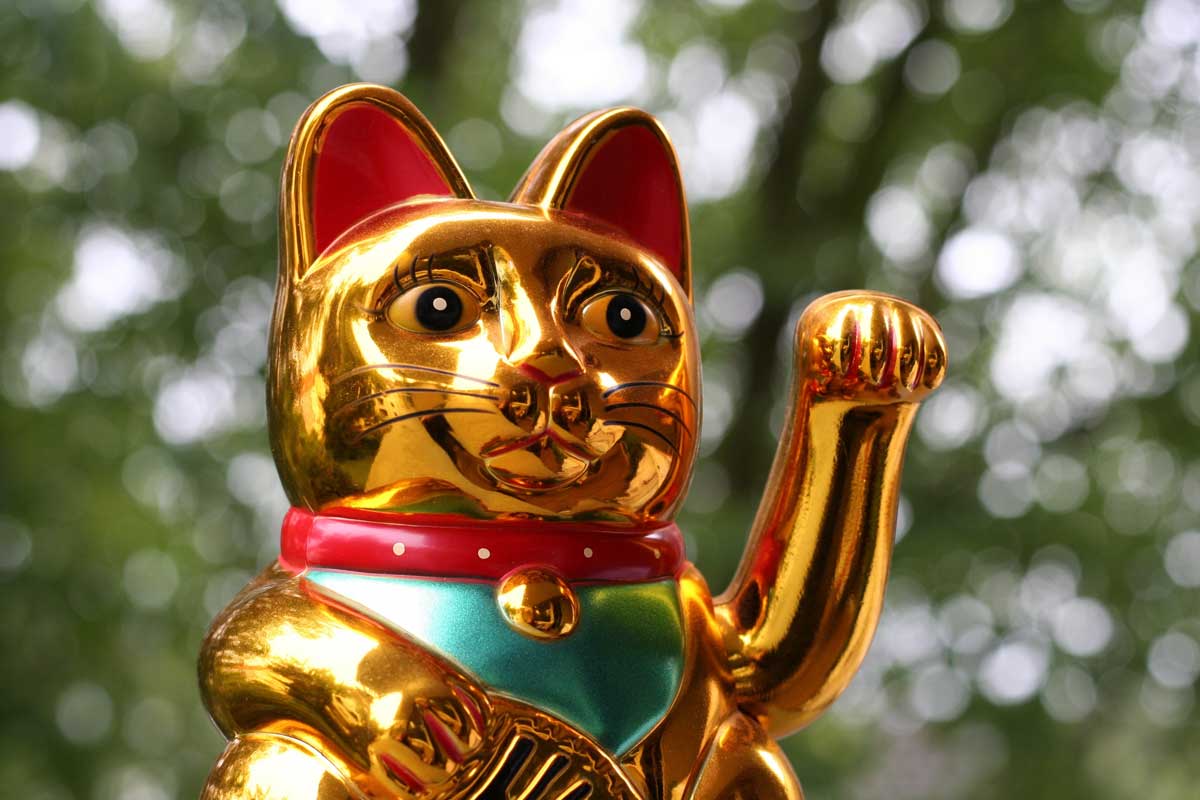
Maneki Neko The Japanese Beckoning Cat TheCatSite
The Maneki Neko is a Japanese figurine representing a sitting cat with one of its front paws raised as a sign of welcome. This small and "welcoming" cat has, according to its color, a different meaning, but it is especially known to bring happiness, luck and good fortune to its owner.

Maneki Neko, Japanese Cat, Japanese Culture, Japanese Things, Japanese
Maneki neko is a traditional Japanese figurine to cultivate prosperity, especially in business. It's a traditional cat statue typically placed near the front of Japanese-owned businesses to greet and attract customers.

Maneki Neko by mewitti Cat tattoo, Lucky cat tattoo, Neko cat
The Maneki-Neko or beckoning cat (招き猫) is believed to bring good fortune to many businesses and owners. It also comes with different names such as the money cat, happy cat, lucky cat, and welcoming cat. It is a very popular Japanese figurine that depicts a Japanese Bobtail cat with its paw raised in a beckoning gesture.
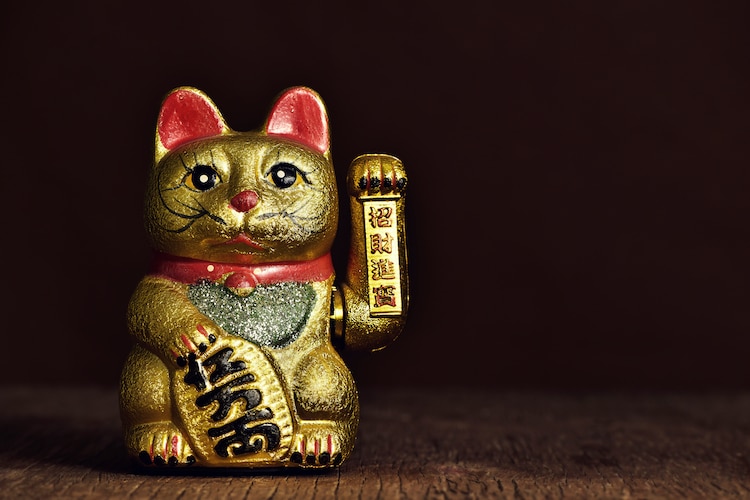
The History and Meaning of ManekiNeko The Japanese Lucky Cat
Surprise—the waving cat, known as maneki-neko, is actually Japanese! Now that you know where this waving cat is actually from, you might be wondering what else you don't know about it..
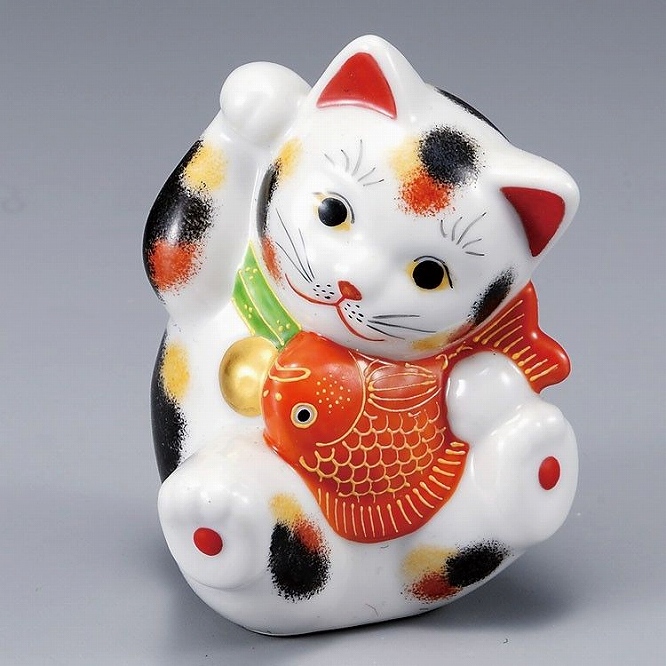
A Simple Guide to Maneki Neko (Lucky Cats) in Japan
This is a complete guide to Japan's "maneki neko" or "lucky cat," long considered to grant people luck. To this day, maneki neko remain popular and are sold as decorative items or given as a gift when a new shop is opened. This article will cover a variety of topics, including the history of maneki neko, the benefits t
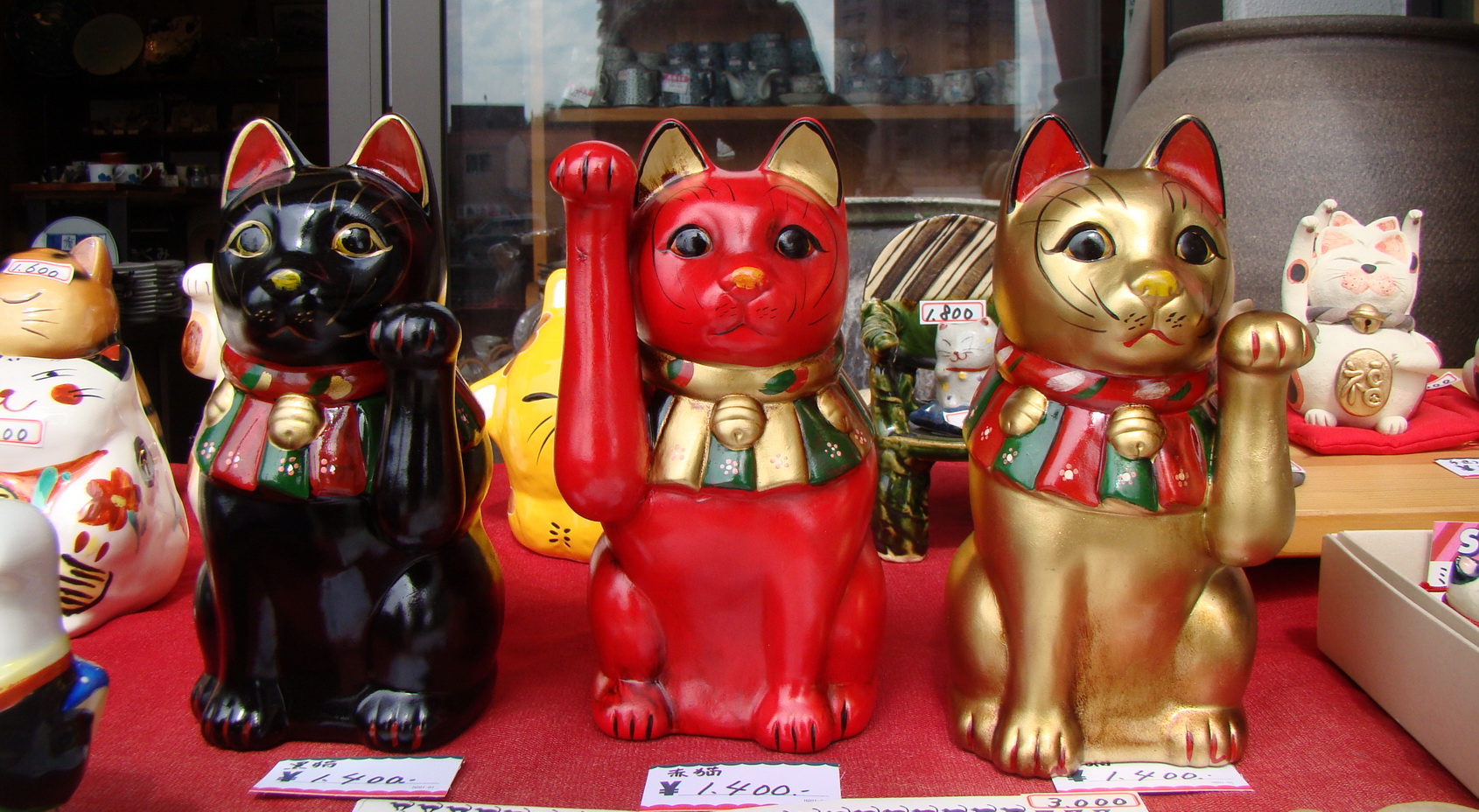
Manekineko The History of the Japanese Lucky Cat CatGazette
1. What Maneki Neko Means A Maneki Neko is also known as a Lucky Cat or Fortune Cat. Photography by Danny Smythe / Shutterstock. Fortune Cat is known as Maneki Neko in Japanese, which.
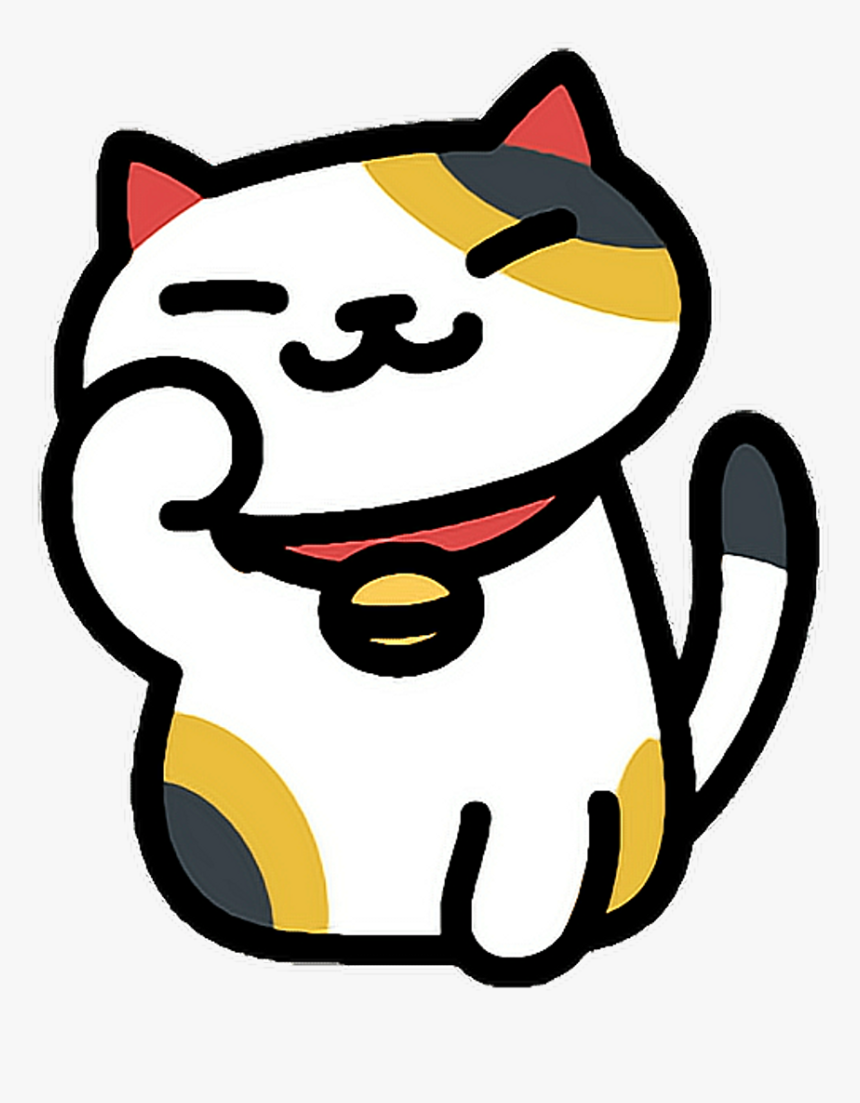
Neko Cat Nekoatsume Cute Simple Kitty Game Japanese Cute Neko Atsume
First of all, "maneki neko" in Japanese (招 き 猫) literally means " the beckoning cat " or "the cat that invites". A traditional Japanese good luck charm depicted as a cat sitting, smiling and raising one or two front paws. This lucky cat is celebrated in Japan on September 29 and its interesting history dates back a long time ago.
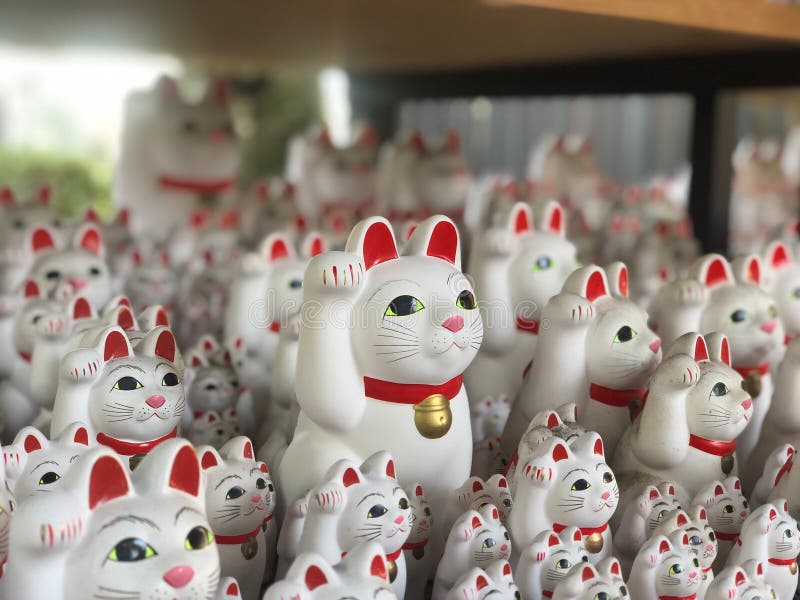
Pile of Cute Japanese Maneki Neko Cat Figurines of Different Sizes
Maneki-neko, translated as beckoning cat but also known as lucky cat or welcome cat, is recognisable internationally, often found behind cash registers of restaurants and retail outlets -.

ManekiNeko The Mysterious Waving Kitties of Japan InsideJapan
The name 'mankei neko' can be attributed to the cat's welcoming paw, as the literal translation is 'beckoning cat.'. Lucky cats are most often ceramic, however, you may find them made from any number of materials-from wood or plastic, to luxury lucky cats made from jade or gold. Even in modern times, maneki neko are still prevalent in Japan.
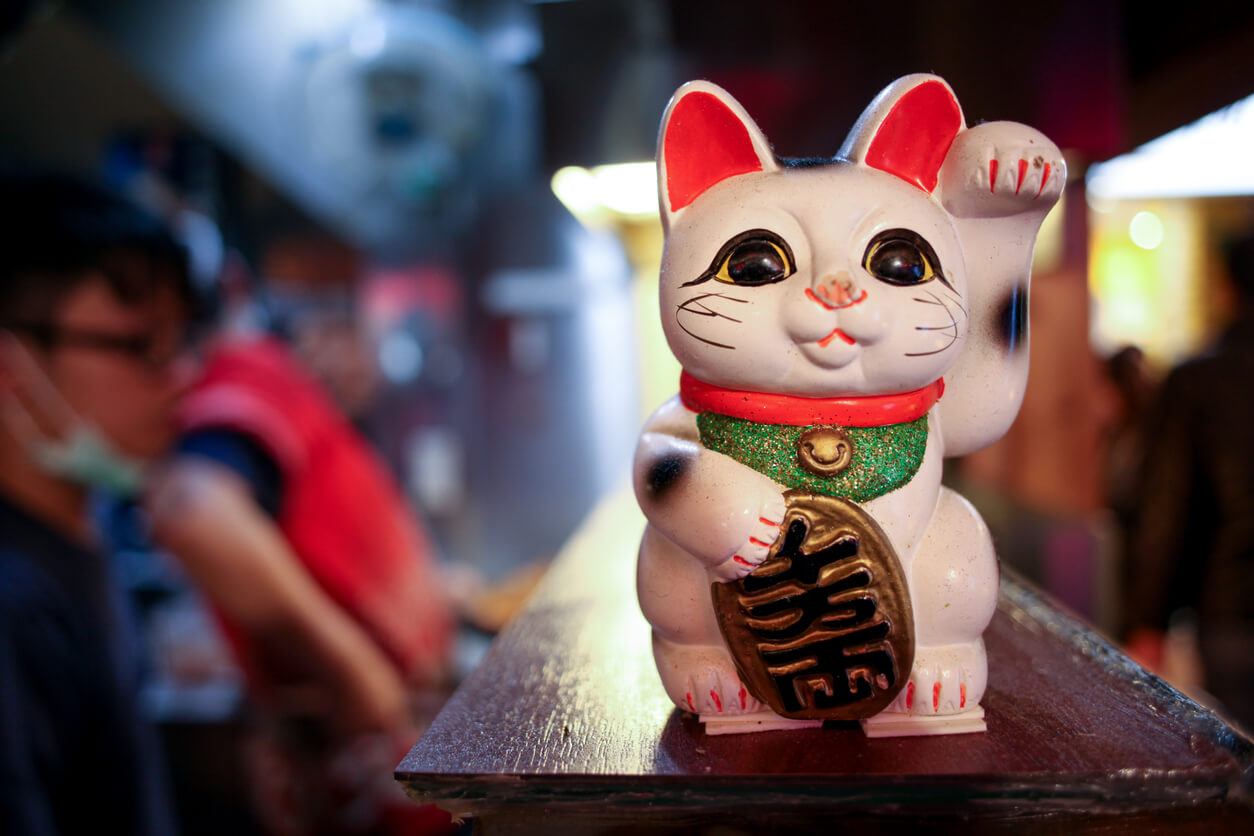
Manekineko The History of the Japanese Lucky Cat CatGazette
Gotokuji Temple, located in the Setagaya ward of Tokyo, is a Buddhist temple that is said to be the birthplace of the maneki-neko, or "luck-inviting cat figurine." These small statues, which portray a cat sitting up and beckoning with its front paw, have become quite popular all over the world with cat-lovers. Although there are many different kinds of maneki-neko raising either their.

Maneki Neko The Japanese Lucky Cat The Beckoning Cat
The maneki-neko is a popular Japanese figurine that is believed to bring good luck and fortune to its owner. Usually made from ceramic or plastic, they depict a Japanese Bobtail cat with its paw raised in a beckoning gesture. Its paw moves back and forth in a swinging motion, and some even have motorized arms so that they can wave all day long.

Maneki Neko Japanese Lucky Cat Stock Photo Download Image Now iStock
The most famous cat 🐈 in Japan, and for a long time now, is the Maneki-neko, meaning "the cat who welcomes" or " lucky cat " 🍀😸. And for good reason: key element of popular consumerism, it can be found everywhere as a figure, in particular: next to cashier machines, to invite clients to pay their purchases or meals; by dozens and with.
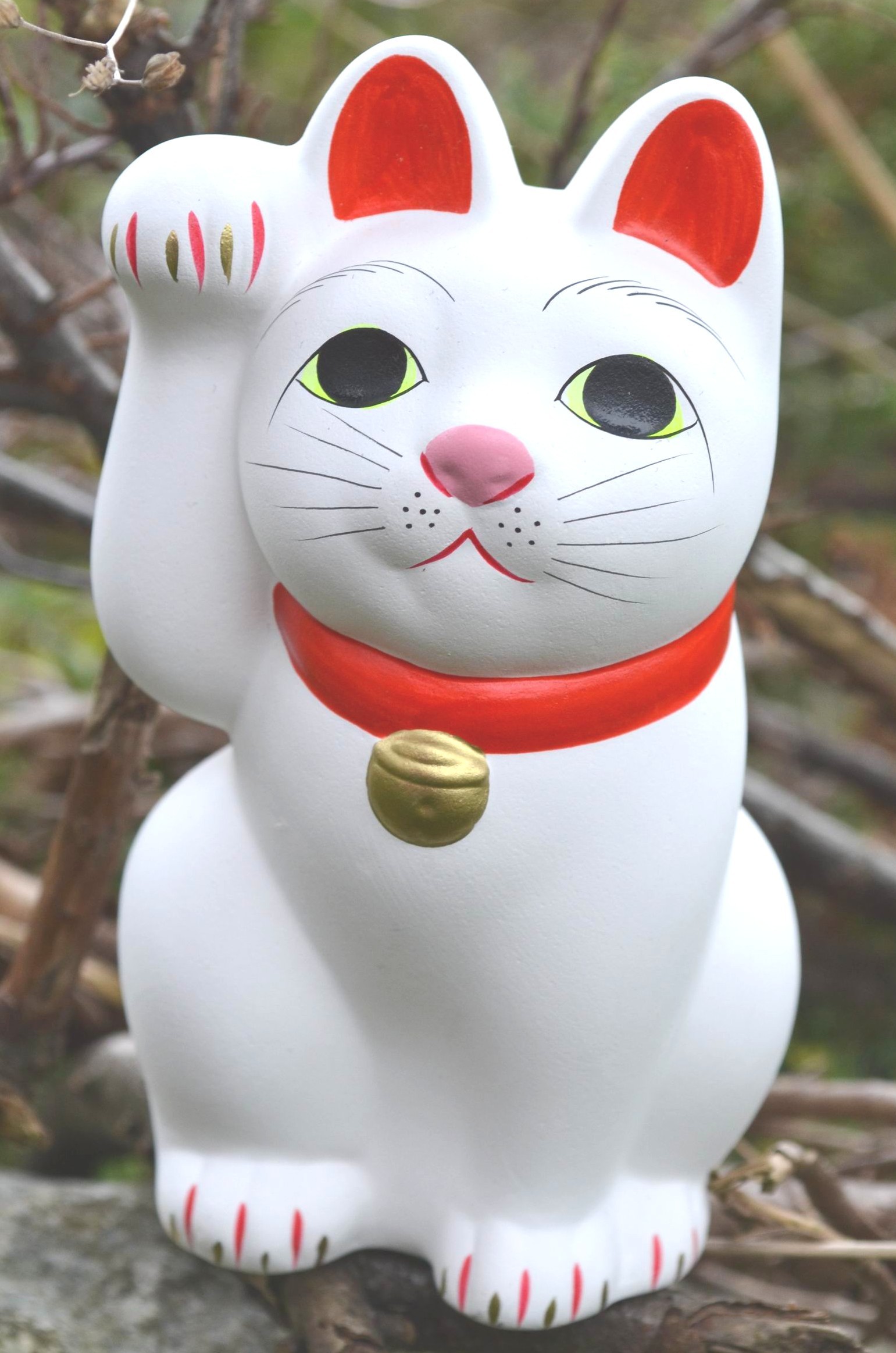
Japanese Lucky Cat Wallpaper (48+ images)
What Are Maneki Neko? Tiresome, Woodblock Print by Tsukioka Yoshitoshi, 1888 The origins of maneki neko start with folklore, though the exact tale is not entirely agreed upon. Perhaps it was the cat that saved the life of Setagaya daimyo Ii Naokoto by beckoning him into Gotoku-ji temple on a stormy night in the early Edo period.

The ManekiNeko, Beckoning Cat About Japanese Culture
The maneki-neko (招き猫, lit. 'beckoning cat') is a common Japanese figurine which is often believed to bring good luck to the owner. In modern times, they are usually made of ceramic or plastic. The figurine depicts a cat, traditionally a calico Japanese Bobtail, with a paw raised in a beckoning gesture.
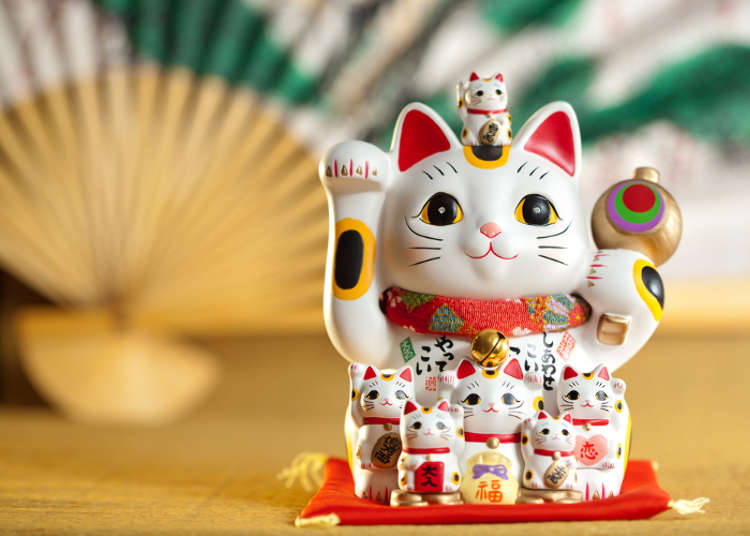
Maneki Neko The Lucky Cats of Japan LIVE JAPAN travel guide
Maneki-nekos have overrun the temple where the legend was born. By Richard Morgan. January 8, 2024 at 7:00 a.m. EST. Thousands of waving maneki-neko (beckoning cat) statues at Gotokuji temple.
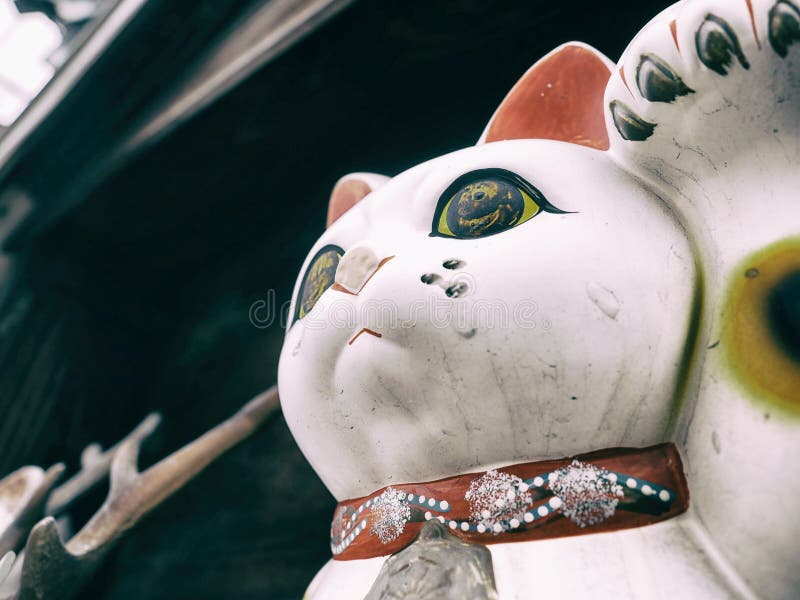
Maneki Neko Japanese Lucky Cat Stock Photo Image of japan, beckoning
With a stoic or laughing air, a malicious cat invites you, with a sign of the paw, to enter such a shop or a restaurant. This iconic feline of Japanese storefronts is none other than the maneki-neko , an essential lucky charm supposed to bring luck and wealth. In Japanese popular culture, maneki-neko comes in the form of a piggy bank, socks, patterns for noren (Japanese curtains), and other.